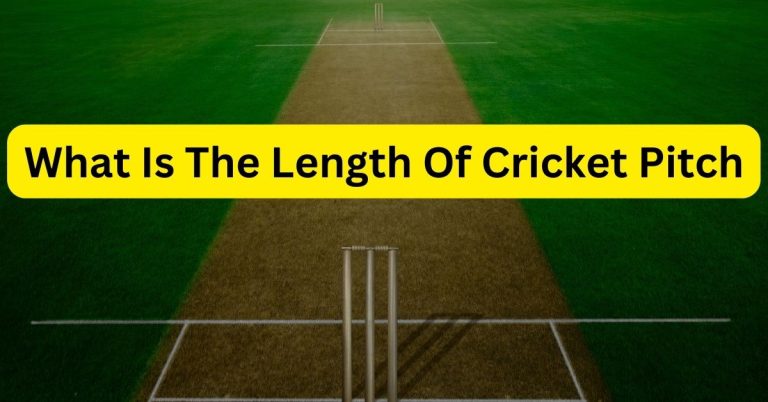Why Cricket Is Not In Olympics?
Have you ever wondered why cricket is not a part of the Olympics? It’s like a juicy apple that’s just out of reach – you can see it, you can smell it, but you can’t quite take a bite. Well, let me tell you all about it.
Firstly, cricket has struggled with global participation. Unlike soccer or basketball, cricket isn’t played in every country around the world. This makes it difficult for the International Olympic Committee (IOC) to justify adding it as an Olympic sport since they aim to promote games that are universally popular.
But wait – there’s more! The format of cricket also presents some challenges for its inclusion in the Olympics. A single game of cricket can last for days on end and require multiple breaks for meals and rest periods. This doesn’t exactly fit into a two-week-long event where hundreds of competitions are held daily.
Lack of Global Participation in Cricket
You’re probably wondering why cricket isn’t in the Olympics, and it’s mainly because not enough countries play it regularly. Cricket has always been a sport that is predominantly played and followed by Commonwealth nations like Australia, England, India, Pakistan, South Africa, and West Indies. As a result, cricket is not as globally diverse as other Olympic sports such as athletics or swimming.
The International Cricket Council (ICC) has attempted to promote cricket on a global scale by organizing tournaments such as the T20 World Cup. However, countries outside of the traditional cricket-playing nations have yet to show significant interest in the sport. As a result, the lack of global participation in cricket prevents it from being included in the Olympics.
Another factor contributing to this issue is that unlike other team sports like football or basketball where only one ball is needed for an entire game; cricket requires specialized equipment such as bats and protective gear for each player. This can be costly for countries with limited resources or infrastructure to support the sport.
In conclusion, while cricket remains an incredibly popular sport among its dedicated followers worldwide; its limited global participation hinders its chances of being featured at the Olympics. The next section will explore further challenges facing cricket’s format for Olympic inclusion – including issues around time duration and adaptability of formats- which may need to be resolved before we see cricket making its debut at an Olympic event soon.
Challenges of Cricket’s Format for Olympic Inclusion
It’s tough to imagine how T20 cricket, with its fast-paced and unpredictable nature, could fit into the tightly scheduled Olympic format. Cricket matches can last for hours, which goes against the Olympics’ aim of showcasing multiple sports in a single day.
Additionally, cricket requires a lot of equipment and preparation time, making it difficult to organize matches within the constraints of an Olympic schedule. Another challenge is finding a balance between traditional cricket rules and Olympic regulations.
For example, cricket teams are typically made up of 11 players per side, but Olympic regulations limit team sizes to just 16 athletes per sport. This means that each team would need to have at least five reserves on standby, which adds another logistical challenge to an already complex event.
Furthermore, there is also the issue of accommodating different playing conditions across nations where cricket is popular. The Olympics require standardized playing conditions for fairness purposes; however, this may not be feasible as different countries have unique climates and pitches that affect gameplay.
Addressing these variations will be challenging as they directly impact the game’s essence. Despite these challenges hindering cricket’s inclusion in the Olympics’ program list so far, there are other factors limiting cricket’s olympic inclusion that must also be considered – such as lack of interest from major cricket boards or controversy surrounding player eligibility criteria – which we’ll delve into further next!
Other Factors Limiting Cricket’s Olympic Inclusion
If you’re a fan of international sports, you’ll be interested to know that out of the top ten highest-earning cricket boards in the world, only three have expressed interest in sending their teams to the Olympics.
This is because there are other factors limiting cricket’s Olympic inclusion beyond just format challenges. One factor is scheduling conflicts with existing cricket tournaments and leagues, making it difficult for players to commit to an extended Olympic schedule.
Another factor is the lack of support from national governing bodies who prioritize other sporting events over the Olympics. Additionally, there are financial implications for countries participating in the Olympics.
Unlike other major sporting events like soccer’s World Cup or rugby’s Six Nations tournament, the International Cricket Council (ICC) does not provide funding for participating teams. This means that countries would need to allocate significant resources towards sending their national cricket team to compete in the Olympics, which may not be feasible given limited budgets.
Another challenge is related to anti-doping regulations. The ICC has its own anti-doping program separate from that of the World Anti-Doping Agency (WADA), which oversees testing and enforcement at most major international sporting events including the Olympics. Harmonizing these programs could prove challenging and time-consuming.
Efforts are being made to include cricket in the Olympics despite these challenges and limitations. Stay tuned for more on this topic as we explore ways in which cricket can become a part of one of the biggest sporting events on Earth.
Efforts to Include Cricket in the Olympics
Despite challenges, efforts are being made to include cricket in one of the world’s biggest international events. As we discussed earlier, there have been multiple factors that have prevented cricket from becoming an Olympic sport. However, this hasn’t stopped various organizations and countries from pushing for its inclusion.
The International Cricket Council (ICC) has been at the forefront of these efforts, lobbying for cricket to be a part of future Olympic games. Its inclusion in the Olympics would provide an opportunity for lesser-known teams to showcase their talent on a global stage and potentially increase interest in the sport. Additionally, it could bridge cultural gaps and promote unity through shared love for a sport. Another factor that makes cricket’s inclusion in the Olympics more feasible than ever before is recent changes to Olympic rules regarding new sports.
In 2013, The International Olympic Committee (IOC) announced that they were open to adding new sports with a focus on youth-oriented events and gender equality. This provides ample opportunities for cricket as it already has established women’s teams as well as shorter formats such as T20 which are more youth-oriented.
In conclusion, despite previous limitations that have hindered its inclusion in past Olympic games, there are promising efforts currently underway to include cricket in future games. With increased support from organizations like ICC and changing IOC policies favoring new sports with youth orientation and gender equity, we may see cricket become an official Olympic sport sooner rather than later. So let’s keep our fingers crossed and hope that our beloved game becomes a part of one of the world’s biggest sporting events!
Potential Future for Cricket in the Olympics
With the increasing global popularity of the sport and recent changes to Olympic rules, there’s a promising future for cricket’s inclusion in one of the world’s biggest international events.
While many have pondered on ‘why cricket is not in Olympics,’ efforts to bring the sport to the Games have not been successful. However, things could change soon with the International Cricket Council (ICC) pushing for its inclusion.
The first step towards making cricket an Olympic sport was taken in 2013 when ICC applied for T20 format’s inclusion at the 2020 Games. However, it did not make it through as only eight sports were added that year.
In 2018, ICC once again made a similar request for T20s at Paris’ 2024 Olympics, but no decision has yet been made by the International Olympic Committee (IOC).
Will cricket be in Olympics? The answer may lie in whether the Board of Control for Cricket in India (BCCI), which holds significant financial power over world cricket, agrees to send its players to participate. Although BCCI has previously expressed reservations about sending their top players due to commercial reasons and scheduling conflicts with other tournaments, they seem more open now after being approached by ICC.
In conclusion, it’s crucial for all stakeholders involved in bringing cricket to Olympics- including ICC officials and national boards such as BCCI- to work together effectively towards this common goal. If these parties can resolve any outstanding differences and show greater flexibility regarding player availability and scheduling issues, there’s every reason why we might see our favorite cricketers competing alongside other athletes from around the globe at one of humanity’s most prestigious sporting events very soon indeed.






